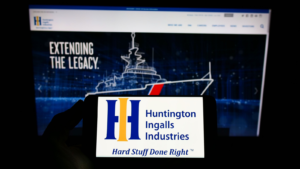The White House and Congress are currently working on the fiscal year 2025 defense budget, which some estimates suggest could reach $900 billion. In ongoing discussions, the Pentagon appears focused on developing missiles like the PrSM to replace ATACM and LRASM for naval targeting, both produced by Lockheed Martin (NYSE:LMT). However, budget constraints may lead to reduced F-35 orders despite foreign acquisitions, affecting the defense stock.
In recent years, substantial defense spending increases overseas in Europe have led to surges in European defense stocks. But more recently, performance has lagged despite market gains, as analysts question whether defense stocks have become overvalued. This follows challenges at larger U.S. firms, such as Boeing (NYSE:BA), facing aircraft construction quality issues unrelated to its defense divisions.
Given fluid spending and tensions, defense stocks that are not necessarily top of mind for investors may have advantages if their outlays address diverse emerging challenges.
Booz Allen Hamilton (BAH)

Booz Allen Hamilton (NYSE:BAH) could be an example of one of the defense stocks that may benefit from increased spending. However, it may not be the first obvious choice for investors seeking direct exposure to the sector. As a provider of engineering, analytics consulting, and digital solutions for mission operations, BAH’s services include cybersecurity, a crucial area for government clients as civilian and military networks are further hardened.
With the White House advocating for a 10% boost in cybersecurity outlays for the upcoming fiscal year, opportunities may arise for defense stocks operating in this domain. In April, Booz Allen partnered with Cloudflare (NYSE:NET) to provide immediate cybersecurity threat response to organizations facing DDoS and ransomware attacks, building a stronger case for the stock. Analyst coverage on BAH also remains consistently positive, with recommendations centered around maintaining or building a position targeting a 12-month price of $156.61 per share.
Huntington Ingalls (HII)

The leading U.S. military shipbuilder Huntington Ingalls (NYSE:HII) represents a prominent investment opportunity in defense stocks. As the foremost builder of America’s nuclear-powered aircraft carriers, it is a mainstay for those seeking direct exposure to the defense sector. Aircraft carriers are critical for power projection into strategically important regions like the Red Sea and supporting allies like Taiwan. This means they remain a priority amid debates around other defense programs. HII also manufactures the new Columbia-class ballistic missile submarines slated to replace the Ohio-class vessels over the next ten years.
The stock trades at a relatively modest price-to-earnings (P/E) ratio of 16.1x, below the broader S&P 500 index’s current P/E ratio of 27.2x. This represents a more affordable valuation for those interested in adding defense stocks to their portfolio. Beating estimates would solidify the defense stock position as a shipbuilding leader and mark its 5th consecutive EPS beat. In addition, the company offers a dividend yield of 1.89%, paid out in March, and has a 12-year increase record.
Howmet Aerospace (HWM)

Given the low-profile nature of its operations, aviation supply company Howmet Aerospace (NYSE:HWM) may not be at the top of many investors’ minds looking for defense stocks. The company manufactures high-precision components for applications such as jet engines and forged aircraft wheels. It also offers metal management consulting services and expertise to defense sector clients. Increased orders for commercial aircraft and greater military aircraft utilization requiring more frequent parts replacements could benefit the business.
Analyst coverage remains optimistic for the company’s potential to leverage its core offering to improve pricing during the current upcycle following the spin-off from Arconic (NYSE:ARNC). The company has achieved EPS growth of 24% per year over the last five years, offering stability through the alignment of the average annual increase in the share price. Shareholders have received a total return of 70% over last year alone, with a consensus price target of $73 per share, representing a double-digit upside from current levels.
On the date of publication, Stavros Tousios did not have (either directly or indirectly) any positions in the securities mentioned in this article. The opinions expressed in this article are those of the writer, subject to the InvestorPlace.com Publishing Guidelines.
Stavros Tousios, MBA, is the founder and chief analyst at Markets Untold. With expertise in FX, macros, equity analysis, and investment advisory, Stavros delivers investors strategic guidance and valuable insights.
